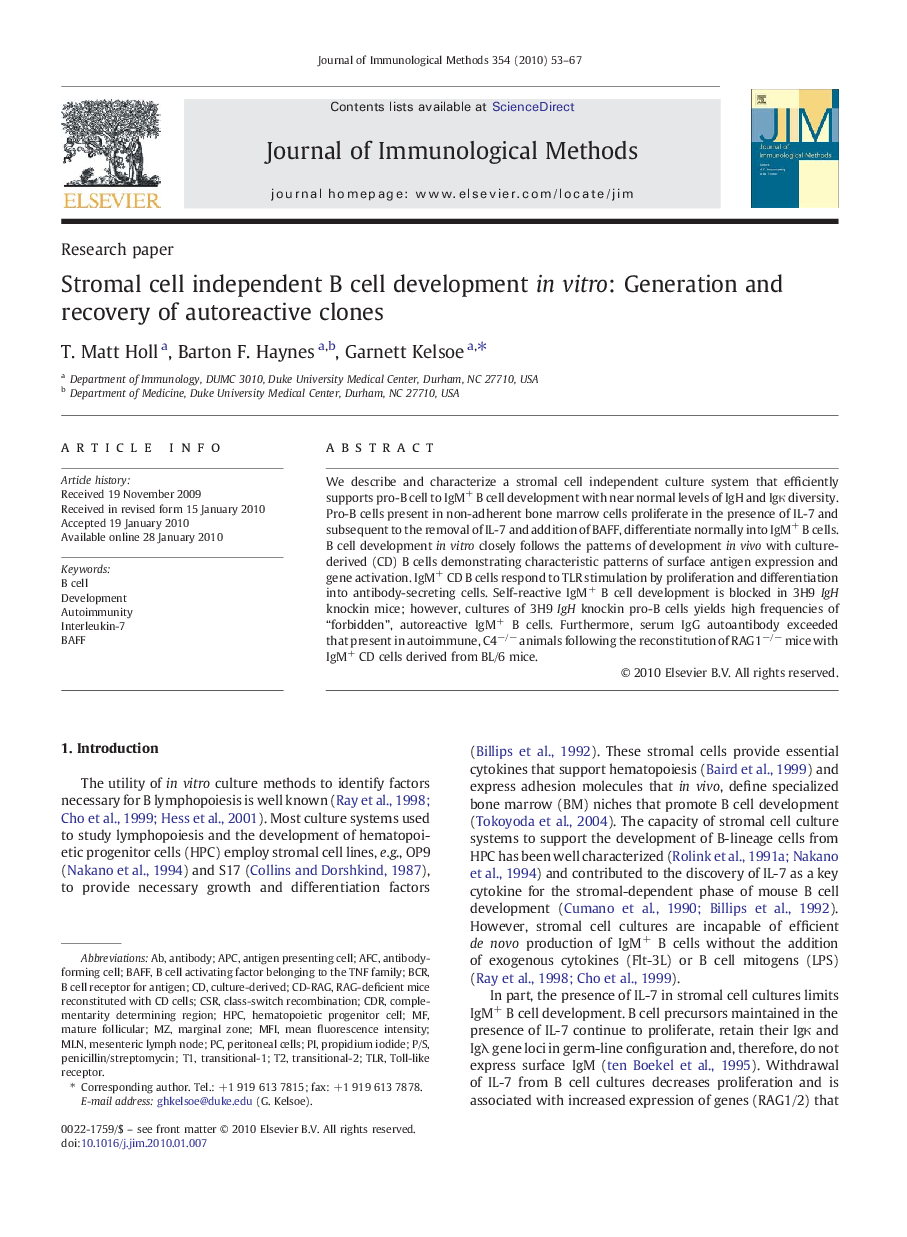| Article ID | Journal | Published Year | Pages | File Type |
|---|---|---|---|---|
| 8419788 | Journal of Immunological Methods | 2010 | 15 Pages |
Abstract
We describe and characterize a stromal cell independent culture system that efficiently supports pro-B cell to IgM+ B cell development with near normal levels of IgH and Igκ diversity. Pro-B cells present in non-adherent bone marrow cells proliferate in the presence of IL-7 and subsequent to the removal of IL-7 and addition of BAFF, differentiate normally into IgM+ B cells. B cell development in vitro closely follows the patterns of development in vivo with culture-derived (CD) B cells demonstrating characteristic patterns of surface antigen expression and gene activation. IgM+ CD B cells respond to TLR stimulation by proliferation and differentiation into antibody-secreting cells. Self-reactive IgM+ B cell development is blocked in 3H9 IgH knockin mice; however, cultures of 3H9 IgH knockin pro-B cells yields high frequencies of “forbidden”, autoreactive IgM+ B cells. Furthermore, serum IgG autoantibody exceeded that present in autoimmune, C4â/â animals following the reconstitution of RAG1â/â mice with IgM+ CD cells derived from BL/6 mice.
Keywords
TLRB cell activating factor belonging to the TNF familyMLNAPCAFCHPCMFICDRBCRCSRP/Sinterleukin-7BAFFToll-like receptorautoimmunityDevelopmentantibody-forming cellPeritoneal cellsHematopoietic progenitor cellantigen presenting cellB cellcomplementarity determining regionmarginal zonemean fluorescence intensityclass-switch recombinationAntibodyPropidium iodidePenicillin/streptomycinmesenteric lymph node
Related Topics
Life Sciences
Biochemistry, Genetics and Molecular Biology
Biotechnology
Authors
T. Matt Holl, Barton F. Haynes, Garnett Kelsoe,
